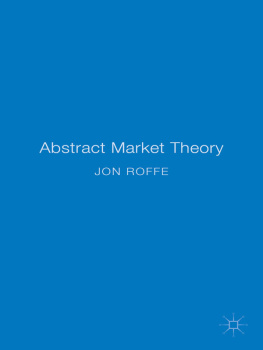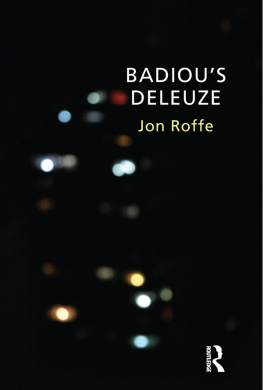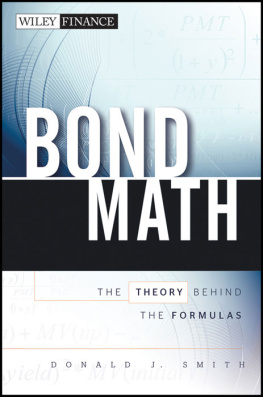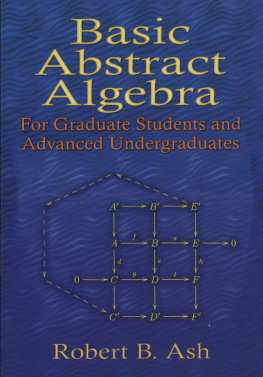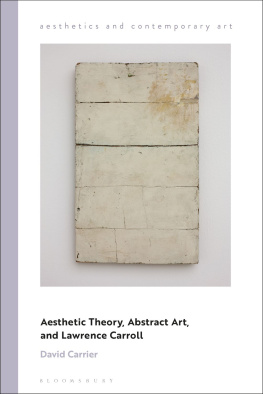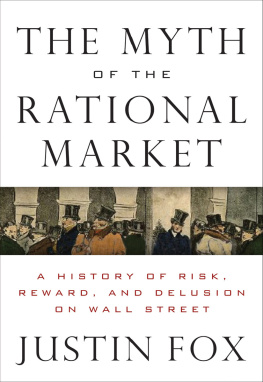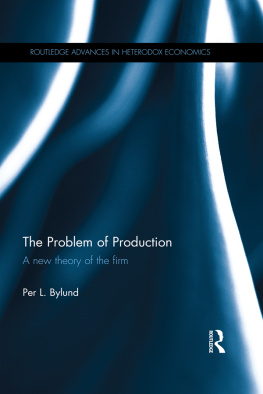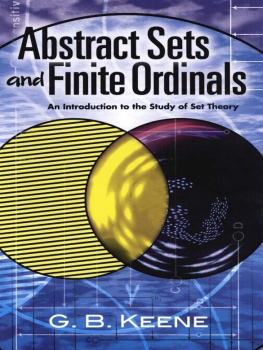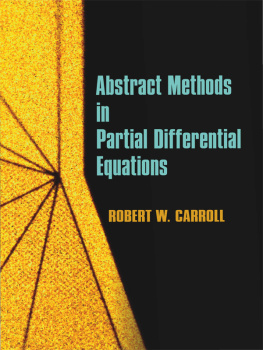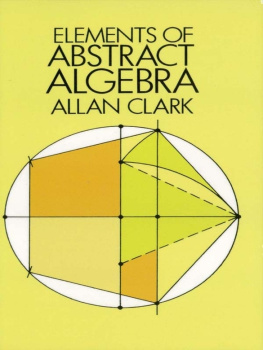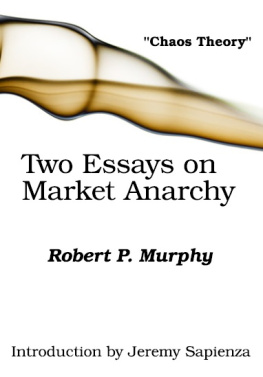Roffe - Abstract Market Theory
Here you can read online Roffe - Abstract Market Theory full text of the book (entire story) in english for free. Download pdf and epub, get meaning, cover and reviews about this ebook. City: Basingstoke, year: 2015, publisher: Palgrave Macmillan UK, genre: Romance novel. Description of the work, (preface) as well as reviews are available. Best literature library LitArk.com created for fans of good reading and offers a wide selection of genres:
Romance novel
Science fiction
Adventure
Detective
Science
History
Home and family
Prose
Art
Politics
Computer
Non-fiction
Religion
Business
Children
Humor
Choose a favorite category and find really read worthwhile books. Enjoy immersion in the world of imagination, feel the emotions of the characters or learn something new for yourself, make an fascinating discovery.
- Book:Abstract Market Theory
- Author:
- Publisher:Palgrave Macmillan UK
- Genre:
- Year:2015
- City:Basingstoke
- Rating:3 / 5
- Favourites:Add to favourites
- Your mark:
- 60
- 1
- 2
- 3
- 4
- 5
Abstract Market Theory: summary, description and annotation
We offer to read an annotation, description, summary or preface (depends on what the author of the book "Abstract Market Theory" wrote himself). If you haven't found the necessary information about the book — write in the comments, we will try to find it.
Abstract Market Theory — read online for free the complete book (whole text) full work
Below is the text of the book, divided by pages. System saving the place of the last page read, allows you to conveniently read the book "Abstract Market Theory" online for free, without having to search again every time where you left off. Put a bookmark, and you can go to the page where you finished reading at any time.
Font size:
Interval:
Bookmark:
Abstract Market Theory
Abstract Market Theory
Jon Roffe
University of New South Wales, Australia


Jon Roffe 2015
All rights reserved. No reproduction, copy or transmission of this publication may be made without written permission.
No portion of this publication may be reproduced, copied or transmitted save with written permission or in accordance with the provisions of the Copyright, Designs and Patents Act 1988, or under the terms of any licence permitting limited copying issued by the Copyright Licensing Agency, Saffron House, 610 Kirby Street, London EC1N 8TS.
Any person who does any unauthorized act in relation to this publication may be liable to criminal prosecution and civil claims for damages.
The author has asserted his right to be identified as the author of this work in accordance with the Copyright, Designs and Patents Act 1988.
First published 2015 by
PALGRAVE MACMILLAN
Palgrave Macmillan in the UK is an imprint of Macmillan Publishers Limited, registered in England, company number 785998, of Houndmills, Basingstoke, Hampshire RG21 6XS.
Palgrave Macmillan in the US is a division of St Martins Press LLC, 175 Fifth Avenue, New York, NY 10010.
Palgrave Macmillan is the global academic imprint of the above companies and has companies and representatives throughout the world.
Palgrave and Macmillan are registered trademarks in the United States, the United Kingdom, Europe and other countries.
ISBN: 9781137511744
This book is printed on paper suitable for recycling and made from fully managed and sustained forest sources. Logging, pulping and manufacturing processes are expected to conform to the environmental regulations of the country of origin.
A catalogue record for this book is available from the British Library.
A catalog record for this book is available from the Library of Congress.
For V. G. excipe furticas et refer ipsa notas.
Contents
Preface
This book presents a philosophy of the market. Rather than demarcate a whole field of engagement, it presents a single chain of concepts, a single line of thought. The various terrains that it cuts through twentieth- century French philosophy (particularly that of Gilles Deleuze), finance, sociology, and psychoanalysis are all familiar, and what follows in no way pretends to exhaust either these fields or the scholarship that turns around them. Neither is the account given its full extension a theory of money and an analysis of the banking system are both absent. My hope, nonetheless, is that the particular way that this book traverses these fields will expose new points of conjunction, from which future conceptual work on the market might depart. In the final instance, I refer myself to Tomas Transtrmers About History: Every problem cries in its own language.
What follows is broken into two parts, which deal respectively with the being of the market and its realization, or the market and the social. The trajectory is concluded by considering the question of temporality, before being recapitulated as a series of axioms and propositions the axioms and propositions of an elementary abstract market theory.
Acknowledgements
The book was written while I was a McKenzie Postdoctoral Fellow at the University of Melbourne, and concluded at the beginning of Vice-Chancellors Postdoctoral Fellow at the University of New South Wales. I would like to thank my colleagues at both institutions for their support, and in particular those in the Department of Management and Marketing in Melbourne, who were hospitable to a fault, even though the work falls far outside of their regular ambit.
Thanks are due to the great many people that I talked about this work with and in front of; I would like to recall the following interlocutors in particular: A. J. Bartlett, Justin Clemens, Bryan Cooke, Ben Chessell, Eugene Holland, Mark Kelly, Marc Lenglet, Yuval Millo, Joeri Mol, Elizabeth Newman, Davor Obradovic, Dean Pierides, Nick de Weydenthal, James Williams and Jessica Whyte.
I would also like to record my great thanks to Elie Ayache. From the beginning, he has been a curious and steadfast supporter of this work. Despite the fact that the argument here departs in a number of ways from his own position, both critically and due to our divergent ways of approaching the question of the market, it remains throughout indebted to his philosophy and would have been impossible without it. I would not hesitate to predict (if he will forgive me for putting it this way) that the intertwining of philosophy and the market that he has inaugurated will remain an indispensable reference for the foreseeable future.
The argument of the first three chapters of the book appeared in a partial, compressed form in From a Restricted to a General Pricing Surface, Collapse 8. I would like to thank Robin Mackay and Urbanomic for the permission to reuse that material here.
Abbreviations for Commonly Cited Works
Elie Ayache
| BSEP | The Blank Swan: The End of Probability |
| EP | Lcriture postrieure |
Gilles Deleuze
| AO | Anti-Oedipus (with Flix Guattari) |
| DR | Difference and Repetition |
| TP | A Thousand Plateaus (with Flix Guattari) |
Quentin Meillassoux
| AF | After Finitude |
| IRR | Iteration, Reiteration, Repetition |
Raymond Ruyer
| NF | No-finalisme |
| GFV | La gense des formes vivantes |
Introduction For an Abstract Market Theory
Amidst the curdling mass of our contemporary doubts, one thing at least is certain: the market exists. And yet, despite this despite the markets ubiquity and its unpredictability, its role in the making of billionaires and the destitution of nations there is an almost total absence of philosophical reflection on its nature.
The question what is the market? can invites a mixture of incomprehension, amusement and an obscure disdain. To further propose that the question is pressing and urgently requires an answer tends to transform these prima facie responses into either weak and blind affirmation, outright hostility, or both.
The amused, critical disinterest in the need for an answer to this question is doubled by an oscillation between two affects. Whether one examines academic discourses about the market (in finance, economics, politics, anthropology or sociology) or what passes for discussion of the same themes in the media (from mainstream reportage to the Financial Review by way of current affairs programming), the same situation may be observed. Everywhere, one is met by a cynicism backed by an unrestricted and unreconstructed optimism. The market is a tool of dispossession, but the people are capable of everything nonetheless. Or: The market is freedom realized, while any attempt to modulate its activity is motivated by a pathological paternalism.
Perhaps there is in these responses a kind of implicit rebuke to the exorbitance (real or imagined) of speculation, a pragmatic rebuff to the excesses of theorizing, and to a certain image of the academic humanities. No doubt, it would be hard to imagine a discourse more pragmatic more than ever willing to float over fundamental questions on a raft of unexamined presuppositions than economics. Certain strains of economics after Hayek even seek to replace this kind of theoretical speculation with the information of price itself, trading the philosopher for the market maker and eradicating, not just the question, but the place of the questioner
Next pageFont size:
Interval:
Bookmark:
Similar books «Abstract Market Theory»
Look at similar books to Abstract Market Theory. We have selected literature similar in name and meaning in the hope of providing readers with more options to find new, interesting, not yet read works.
Discussion, reviews of the book Abstract Market Theory and just readers' own opinions. Leave your comments, write what you think about the work, its meaning or the main characters. Specify what exactly you liked and what you didn't like, and why you think so.

